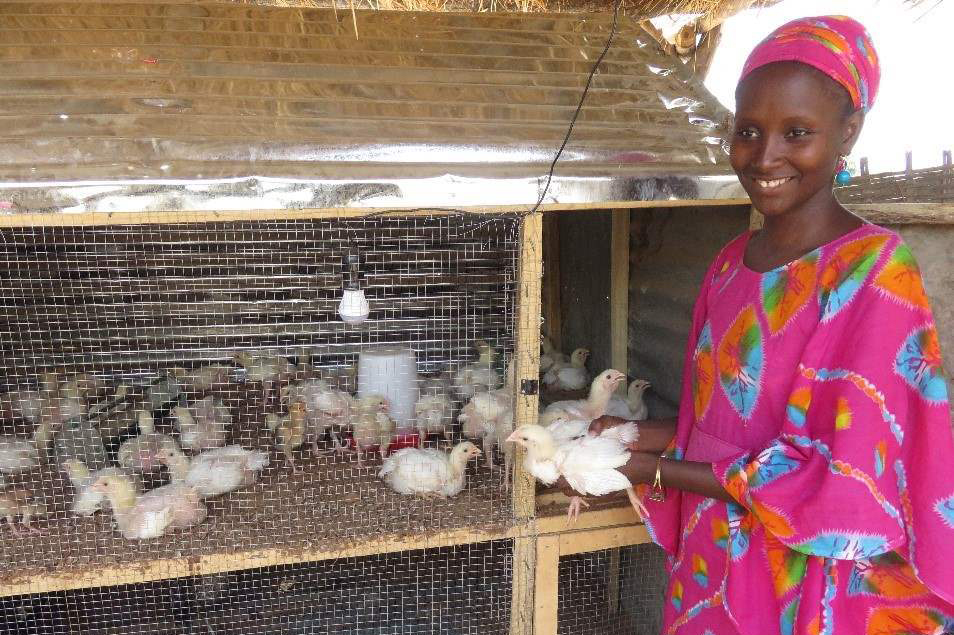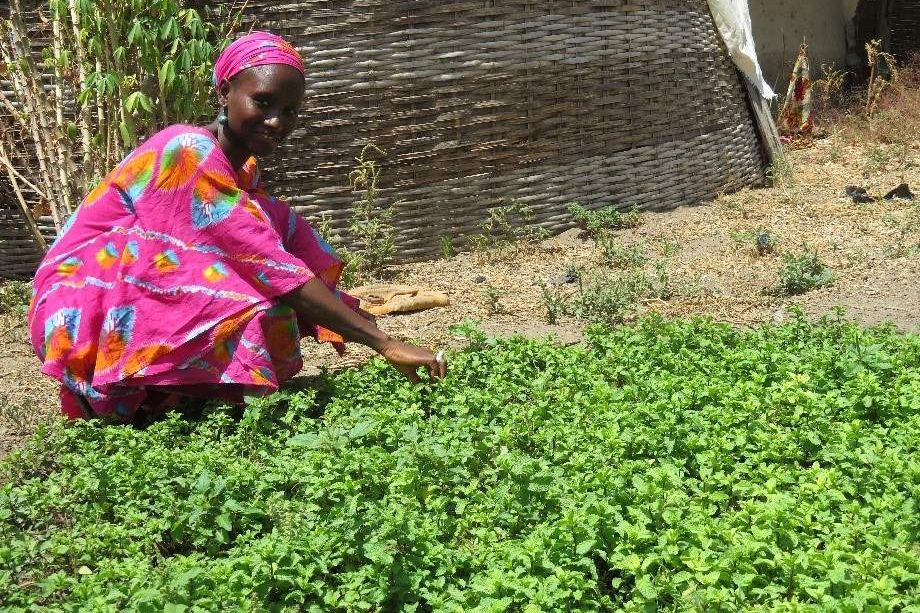We often say that chickens change lives for the farmers we work with who struggle daily for sources of food and income—especially for women.
But how?
Read more stories of empowered women farmers around the world.
Salimata Drame, or Sali for short, is one example. Heifer was able to help her kick-start her own poultry business, which has transformed her family and community in Senegal. Here’s how Sali says her life has changed since starting her business:
1) More money: Before the project, Sali’s annual income was about $976. Her poultry business has increased her annual income so far by 35% to $1, 627. “I prefer the poultry business because it gives us money consistently without stress,” she said.
2) Better nutrition: Sali reports that she has seen a significant improvement in her family’s nutrition since she started raising chickens. They eat eggs whenever they want, and they have chicken weekly instead of monthly, like before. “Before the project, we were mostly eating rice, and we seldom ate more than two meals a day,” she said. “We have a variety of meals on our table weekly, and my children look healthy and strong.”

3) New skills: Before the project, Sali made peanut paste and occasionally volunteered at her community radio station. Then, the project gave her three hens and one rooster. With no prior skills in poultry farming, Sali lost one of the three hens. However, the other two hatched 12 chicks. She soon had 13 birds. Invigorated by this progress, Sali invested in 25 more chicks and soon her flock had grown to 50 birds. Sali’s newly obtained livestock and skills combined with her training enabled her to increase her flock to more than 500 chicks with 140 mature birds—worth about $813, an amount close to what she once earned in an entire year.
4) Reinvigorated farm: Success in the poultry business has strengthened the family's other economic endeavors, as well. They now use the fowl droppings to fertilize their crops, which led to a 25 percent harvest increase in their off-season vegetables. They also used money from the poultry business to purchase a machine for the peanut paste production. “The peanut business, which I scaled up with income of the poultry business, accounts for 10 percent of my annual earnings,” Sali said. “This poultry business is giving my life added shape.”
5) Perks for the whole community: This project has not only been beneficial for Sali’s family, but for the entire community of Pata, as it enables the community members to access and eat more poultry. “One time, there was not beef meat in the entire community and there were visitors, so the mayor called on me to provide poultry, which saved the community from embarrassment,” Sali said.
Sali is trying to reach other community members by passing on the gift through her livestock and knowledge. “I recently trained 10 women in the community and recorded the training and aired it over our local radio station that reaches about 7,000 members of the community,” she said.

Despite representing half the population, women are disproportionately affected by hunger and poverty and their underlying causes. Learn more about how Heifer helps empower women around the world right here.
Next Sali hopes to step up production to meet demand, as there are times when people come for poultry and she do not have any. She also realized that some people cannot buy a whole chicken for 2,500 West African CFA francs (about $4), so she wants to purchase a freezer, which will allow her to slaughter poultry and sell it in kilograms.
With Sali’s entrepreneurial endeavors has come the ability to save for the future. Sali recently opened an account for her son, where she has saved 40,000 West African CFA francs, or about $65.
There are still challenges for Sali to face, but she looks to the future with hope and determination to see her goals through.
“I hope to support my husband to build a decent house for the family and educate my children to the highest level,” she said. “However, one has to be persistent, learn, practice and scale up.”